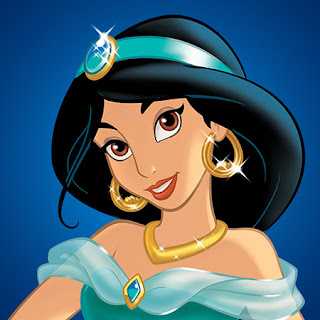For people reading the blog that
have not watched the movie, which is probably very few, here is a quick summary
of the plot. Aladdin lives in the city of Agrabah, who has to steal food to survive.
After freeing the lamp and three wishes granted, the evil force
arrives and Aladdin needs to save his love, Princess Jasmine and an adventure
unfolds.
Aladdin is considered an all-time
Disney Classic and it deserves such title. The music and humor in the movie
provides wonderful entertainment toward children. Brilliant performance by individuals
in the movie such as Robin Williams makes characters extremely entertaining to
watch.
 However,
racial generalization in the film passes right through the heads of audiences
without realizing its potential implications. Aladdin as an early Disney
production does exhibit traits of racism. In the song “: Oh, I come from a land
From a faraway place Where the caravan camels roam. Where they cut off your ear
If they don't like your face It's barbaric, but hey, it's home.” Critics
have continually blamed Disney for demonizing races in its earlier productions
and Aladdin is one that takes a lot of the heat. The New York Times countered
Disney and said, “To characterize an entire region with this sort of tongue-in-cheekbigotry, especially in a movie aimed at children, borders on barbaric.”
However,
racial generalization in the film passes right through the heads of audiences
without realizing its potential implications. Aladdin as an early Disney
production does exhibit traits of racism. In the song “: Oh, I come from a land
From a faraway place Where the caravan camels roam. Where they cut off your ear
If they don't like your face It's barbaric, but hey, it's home.” Critics
have continually blamed Disney for demonizing races in its earlier productions
and Aladdin is one that takes a lot of the heat. The New York Times countered
Disney and said, “To characterize an entire region with this sort of tongue-in-cheekbigotry, especially in a movie aimed at children, borders on barbaric.” This conflict is saddening because Disney
produces goods that attract the public. Back in 1992, racism is still a social
trend that could not be easily broken off. Instead of saying Disney is the one
to blame, the public itself should improve as a whole because Disney is not an
advanced philosophical palace; it is not a world that contains all truth; it
is, however, a reflection of populism. Even at present day, audiences hardly
realize the stereotypical depictions in the movie, instead, they remembered them
as a childhood movie that provided happiness and joy.
This conflict is saddening because Disney
produces goods that attract the public. Back in 1992, racism is still a social
trend that could not be easily broken off. Instead of saying Disney is the one
to blame, the public itself should improve as a whole because Disney is not an
advanced philosophical palace; it is not a world that contains all truth; it
is, however, a reflection of populism. Even at present day, audiences hardly
realize the stereotypical depictions in the movie, instead, they remembered them
as a childhood movie that provided happiness and joy.
Although
Disney may not be completely at fault, I am not denying that such criticism is necessary
and much needed for American public to realize the underlying racism in movies,
books and memories. In fact, Disney is never perfect even though the
corporation tries the hardest to please the public. Even so, Disney hardly acknowledge
their potential mistakes, but decorate their creations as wonderlands with
purity. In marketing perspective, yes, it is good for business. But when the imaginary
bubbles break in front of their consumers, the consequences can be influential.
Over the
past decades Disney has improved tremendously in its stand on racism. With the
new Moana movie with the first South African princess as protagonist and
upcoming reboot of Mulan, Disney is taking huge steps on following up the
social trends that push for racial and gender equality. And it is our job as
the public to let Disney realize that the public wants stories of globalization
and equality of races, genders and sexuality instead of hierarchical and biased
tales.
Overall,
I enjoyed the movie and admittedly, the racist propaganda is indeed easy to get
into audiences’ mind. The humor and the addictive soundtrack were enough to
make me whistle along through the movie.
Further information about Aladdin can be viewed here.


No comments:
Post a Comment